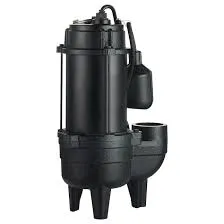Persian
- Afrikaans
- Albanian
- Amharic
- Arabic
- Armenian
- Azerbaijani
- Basque
- Belarusian
- Bengali
- Bosnian
- Bulgarian
- Catalan
- Cebuano
- Corsican
- Croatian
- Czech
- Danish
- Dutch
- English
- Esperanto
- Estonian
- Finnish
- French
- Frisian
- Galician
- Georgian
- German
- Greek
- Gujarati
- Haitian Creole
- hausa
- hawaiian
- Hebrew
- Hindi
- Miao
- Hungarian
- Icelandic
- igbo
- Indonesian
- irish
- Italian
- Japanese
- Javanese
- Kannada
- kazakh
- Khmer
- Rwandese
- Korean
- Kurdish
- Kyrgyz
- Lao
- Latin
- Latvian
- Lithuanian
- Luxembourgish
- Macedonian
- Malgashi
- Malay
- Malayalam
- Maltese
- Maori
- Marathi
- Mongolian
- Myanmar
- Nepali
- Norwegian
- Norwegian
- Occitan
- Pashto
- Persian
- Polish
- Portuguese
- Punjabi
- Romanian
- Russian
- Samoan
- Scottish Gaelic
- Serbian
- Sesotho
- Shona
- Sindhi
- Sinhala
- Slovak
- Slovenian
- Somali
- Spanish
- Sundanese
- Swahili
- Swedish
- Tagalog
- Tajik
- Tamil
- Tatar
- Telugu
- Thai
- Turkish
- Turkmen
- Ukrainian
- Urdu
- Uighur
- Uzbek
- Vietnamese
- Welsh
- Bantu
- Yiddish
- Yoruba
- Zulu
Telephone: +86 13120555503
Email: frank@cypump.com
آگوست . 06, 2024 14:17 Back to list
Efficient Solutions for Septic System Pumping and Maintenance to Ensure Optimal Performance
The Importance of a Pump for Septic Systems A Comprehensive Guide
When it comes to maintaining a functional and effective septic system, ensuring that the right equipment is in place is crucial. Among the various components that contribute to this system's efficacy, the pump plays a pivotal role. A septic pump is specifically designed to move wastewater from the septic tank into the drain field, facilitating proper sewage management and contributing to a healthy environment.
Understanding Septic Systems
Before delving into the importance of septic pumps, it's essential to understand how septic systems work. A typical septic system comprises a septic tank and a drain field. Wastewater from your home flows into the septic tank, where it is treated through a biological process involving anaerobic bacteria. The solids settle at the bottom, forming sludge, while lighter materials, like grease and oils, float to the top, forming scum.
However, not all situations allow for gravity to do its job in moving wastewater from the septic tank to the drain field. In cases where the land is not conducive or the layout of the property doesn’t allow for simple gravity flow, this is where septic pumps become indispensable.
The Role of Septic Pumps
Septic pumps serve several critical functions in the overall operation of septic systems. Primarily, they are used to transport wastewater from the septic tank to the drain field when gravity is insufficient. This is particularly common in low-lying areas or homes situated on steep hillsides where natural drainage is problematic.
Another significant role of these pumps is to help manage the flow of wastewater during periods of high usage. For instance, during heavy rains or floods, the ground may become saturated, making it difficult for the system to absorb water. A pump can help alleviate this issue by pumping the wastewater to a more suitable location where it can be adequately processed.
pump for septic

Types of Septic Pumps
There are primarily two types of septic pumps submersible and effluent pumps.
1. Submersible Pumps As the name suggests, these pumps are designed to operate while submerged in the wastewater within the septic tank. They are typically more efficient and quieter than other types of pumps. However, they can be more complicated to repair or replace since they often require access to the tank.
2. Effluent Pumps These are used specifically to pump out the treated effluent from the septic tank into the drainage field. They are positioned above the wastewater level, which makes them easier to access, but they generally have a shorter lifespan due to their exposure to the elements.
Maintenance and Care
To ensure longevity and effectiveness, regular maintenance of your septic pump is vital. Homeowners should schedule routine inspections by a professional to check for any signs of wear and tear. Regular pumping of the septic tank every three to five years is also recommended to prevent sludge buildup that can affect the pump's performance.
Conclusion
The septic pump is a crucial component of a septic system, ensuring waste is properly managed and reducing the risk of environmental contamination. By understanding the importance of these pumps and ensuring they are well-maintained, homeowners can protect their property, promote public health, and safeguard the environment. Investing in the right septic pump and taking proactive measures for its upkeep not only enhances the life of the system but also provides peace of mind for homeowners far and wide.
-
ISG Series Vertical Pipeline Pump - Chi Yuan Pumps Co., LTD.|Advanced Hydraulic Design&Energy-Efficient Solutions
NewsJul.30,2025
-
ISG Series Vertical Pipeline Pump - Chi Yuan Pumps Co., LTD.
NewsJul.30,2025
-
ISG Series Vertical Pipeline Pump - Chi Yuan Pumps Co., LTD.|energy-efficient fluid handling&industrial durability
NewsJul.30,2025
-
ISG Series Vertical Pipeline Pump - Chi Yuan Pumps | Advanced Engineering&Industrial Efficiency
NewsJul.30,2025
-
ISG Series Pipeline Pump - Chi Yuan Pumps | High Efficiency, Energy Saving
NewsJul.30,2025
-
ISG Series Vertical Pipeline Pump-Chi Yuan Pumps|High Efficiency&Reliable Performance
NewsJul.29,2025










